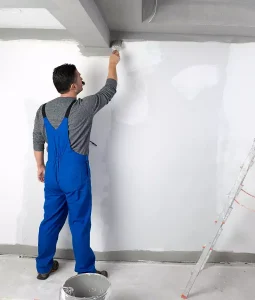- Hacking & Tiling
- Masonry
- Electrical
- Carpentry
- Plumbing
- Vinyl
- False Ceiling & Partition
- Tabletop & Stone
- Glass & Mirror
- Window
- Cleaning
- Door
- Painting
Demolition and hacking works are charged by the number of items involved and the scope of work involved, to cut costs on hacking costs. Our designers will advise based on budget and safety considerations.
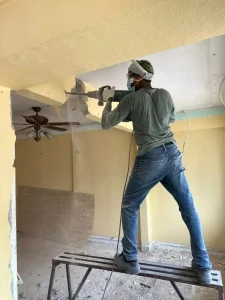
Hackers are also responsible for clearing of debris from the site, a general residential renovation site will require at least 2-3 site debris clearance during the process, this is chargeable by the amount of trips.
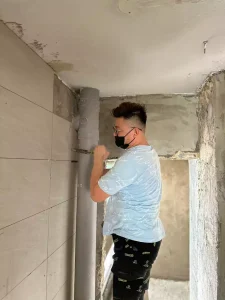
The first step in masonry work is to develop a plan and design for the project. This may involve working with an architect or engineer to create detailed drawings and specifications.
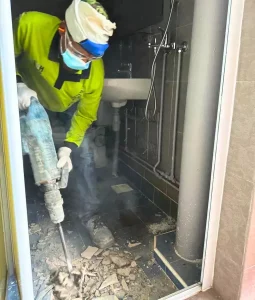
Once the plan is finalized, the site is prepared for construction. This may involve clearing and leveling the area, installing footings or foundations, and marking out the layout of the structure.
The masonry materials are selected and prepared for construction. This may involve cutting, shaping, and finishing the materials to the desired size and shape.
The masonry work begins, with the laying of the materials in accordance with the design and specifications. The masonry units are carefully placed and aligned, and mortar is used to bond them together.
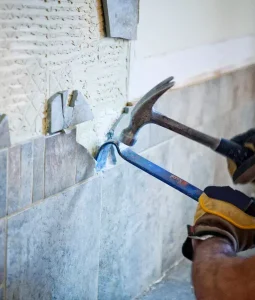
Electrical works consists of installation, repair, maintenance, and upgrade of electrical systems and components in residential, commercial, and industrial buildings.
The first step in electrical services is to schedule an initial consultation with an electrical contractor. During this consultation, the contractor will assess the client's needs and provide a recommendation for the electrical system or component required.
Once the client agrees to the recommended system or component, the contractor will proceed with designing the electrical system or component. The design will take into consideration the client's needs, local building codes, and safety regulations.
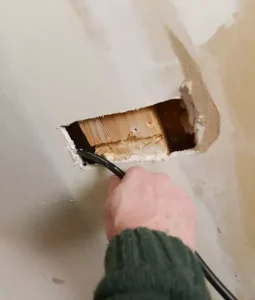
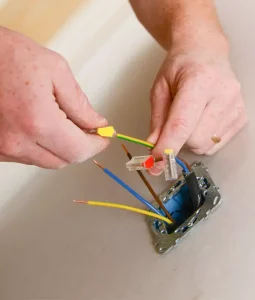
Carpentry works involves the design, fabrication, installation, and repair of custom-made wooden structures or furniture.
The first step in carpentry services is to consult with a carpenter or a carpentry firm. During the consultation, the client will discuss their needs and requirements for the project, and the carpenter will provide recommendations on the design and materials that will be used.

After the consultation, the carpenter will select the appropriate wood materials to use for the project based on the client's requirements and design. The wood may be sourced locally or imported, depending on the desired quality and availability.
Once the design and materials are selected, the carpenter will begin the fabrication process. This may involve cutting, shaping, and joining the wood to create the desired structure or furniture piece. The carpenter may use a variety of tools and techniques, such as sawing, sanding, planing, and routing, to create the final product.
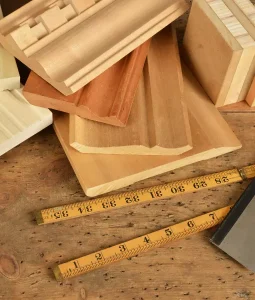
Plumbing works are generally categorized under 2 categories, piping and installations. Charges for pipings are determined by distance covered and whether the pipes are concealed. Installations are chargeable by the number of items required to be installed in each area.


Vinyl comes from many different countries, generally in 3mm or 5mm. Vinyl work is chargeable by area, factoring a wastage of around 10%.
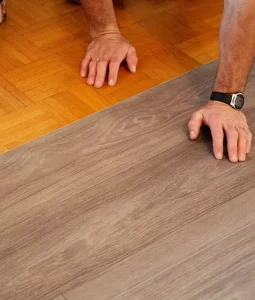
In the event vinyl is used to cut and used as skirting, instead of the normal pvc, there will be a premium charged for labour & material.
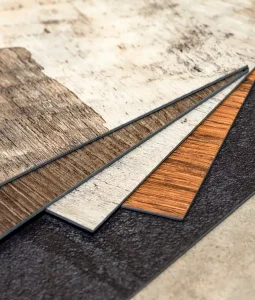
False ceiling is normally charged by area and depth away from ceiling.
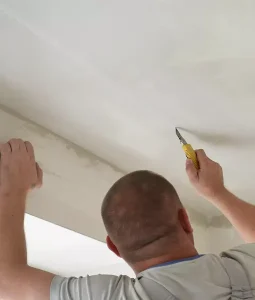
Partition works are normally charged based on area and whether it is one sided make good or both sided make good, materials involved affects the pricing as well.
Cove light holders are chargeable by per foot run, and the depth of the holder. The default one used in households are normally 450mm, in the event we need a bigger depth, a slight premium will be chargeable.

Rounded finishings are generally more expensive compared to standard finishings.
Tabletops are generally classified into the following materials: Solid Surface, Quartz, Kompacplus, Sintered Surface, Granite, Marble, Other natural stones.
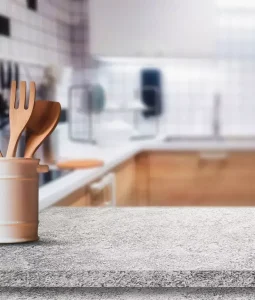
The price determining factor boils down to the material chosen for the project, including depth and length of the material. Quartz, Sintered surfaces & kompacplus are generally very popular amongst clients.
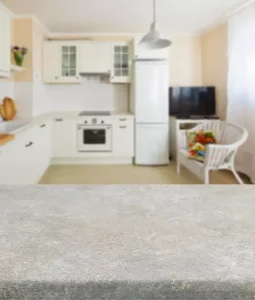
Glass are chargeable by per item for standard items like shower screen or glass door for residential.
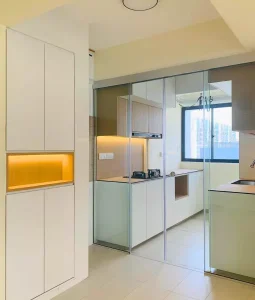
Glass with heat film are also more expensive due to the nature of work involve and the specifications required.
Mirror comes in different colors, with black and copper as the premiums.
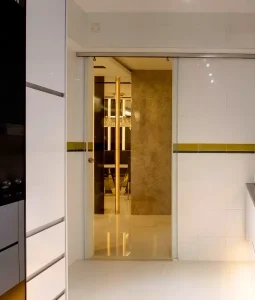
Windows are chargeable by area and the material used.
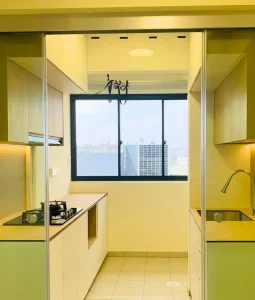
Double glazed windows or sound proof windows are generally more expensive, nearly up to 2x normal windows depending on which system we are using.
Window grilles are chargeable by area and material used.
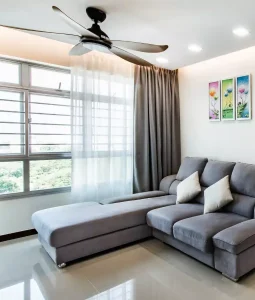
Cleaning services are classified in 2, chemical washing and general washing. Chemical washing is normally done after masonry works to clean off the cement stains and generally washing is normally done post renovation for a deep clean of the entire site.
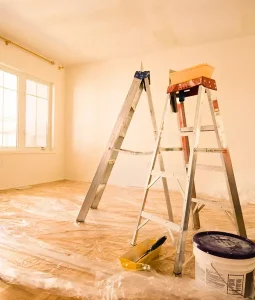
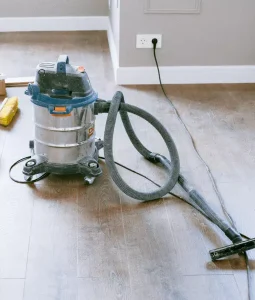
Door works are chargeable by the material and size. Our door partners’ showroom is available for visits to understand more about the different types of material for the bedroom, balcony, and main door.
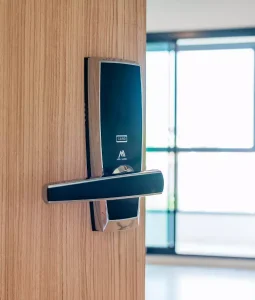
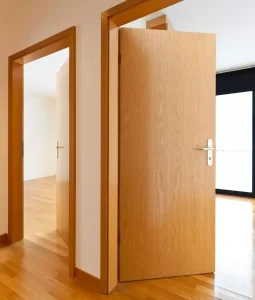
Painting works are chargeable by the size for residential projects.
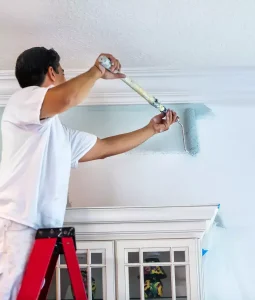
Other considerations will be for the need to apply sealant, upgrade to washable paint, making good of walls, sanding and covering of holes after removing existing fixtures.
